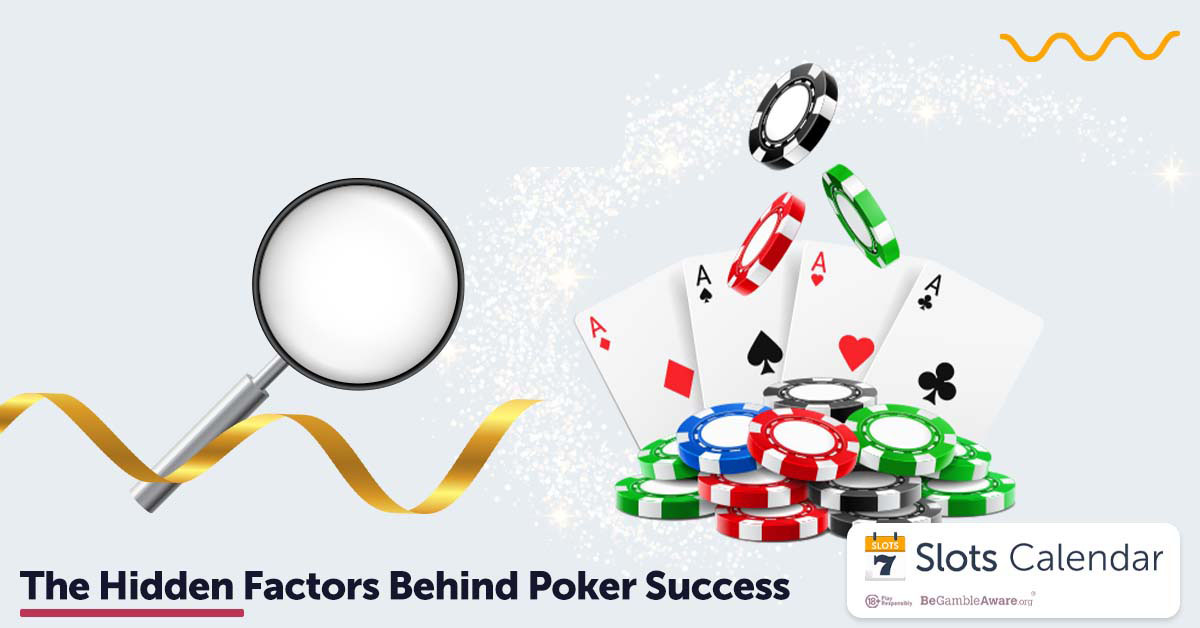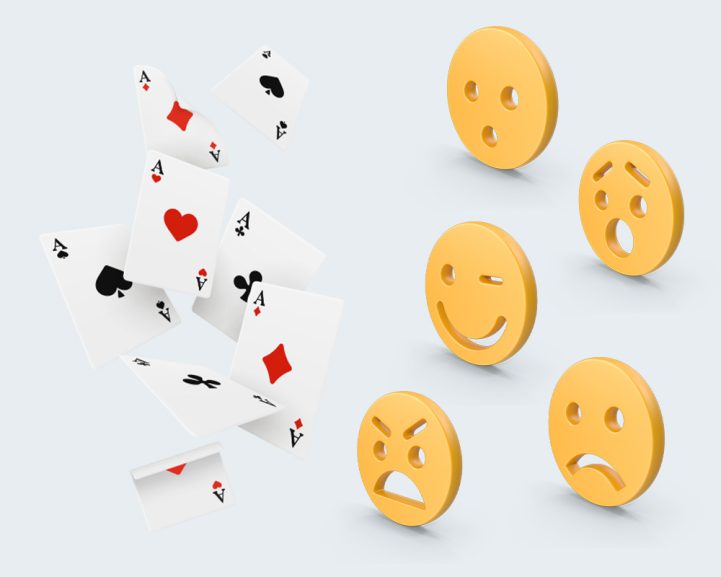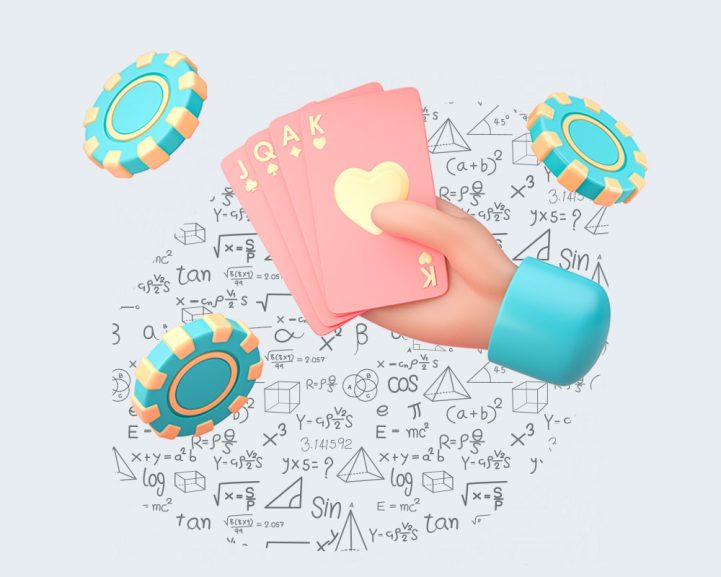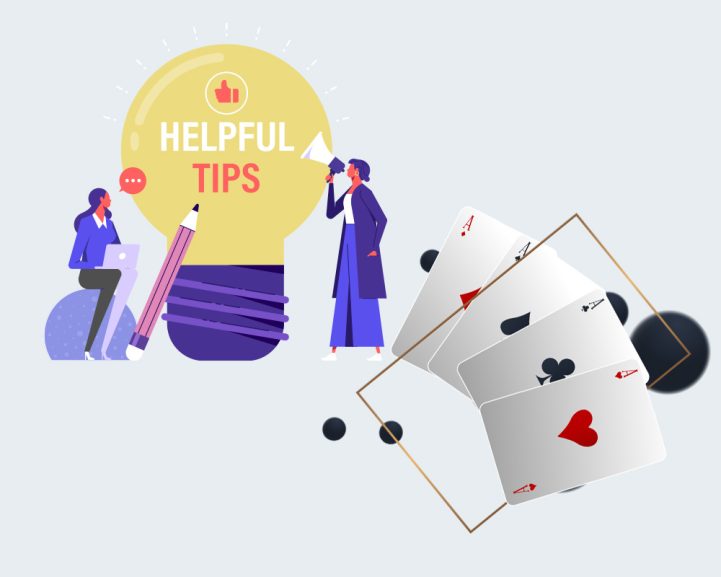Poker is a game that has captivated people worldwide for centuries, and it still charms players nowadays. It is a game of strategy, skill, and luck that anyone can play, from beginners to professionals. For that reason, there are plenty of online poker sites where you can test your skills.
However, beyond the game’s basic rules and mechanics, an entire world of psychology comes into play.
Poker psychology is a fascinating field that explores the impact of emotions, personality traits, cognitive biases, and game theory on decision-making and strategy in the game.
In this article, we will delve into the psychology of poker and explore the different factors that can influence a player’s performance at the table. So, read on, gain valuable insights into your behaviour, and make better decisions at the table, ultimately improving your game.
The Role of Emotions in Poker
Poker is a game that requires a high level of mental acuity and strategic thinking. Together with proper skills and strategy, this is a must, even if you’re trying to win at video poker sites.
While it’s essential to understand the rules and basic strategies of the game, one aspect that is often overlooked is the role of emotions in poker.
Emotions play a significant role in decision-making and can significantly impact the outcome of a game. When a player is experiencing a strong emotion, such as anger or frustration, their ability to make rational decisions is impaired. This can lead to poor decision-making and, ultimately, losing the game.
On the other hand, positive emotions such as confidence and excitement can help players make better decisions and increase their chances of winning.
Tilt
One emotional state that is commonly experienced in poker is tilt. Tilt refers to a state of emotional and mental frustration that occurs when a player experiences a series of bad beats or losses. This can lead to a loss of focus, poor decision-making, and more losses.
Tilt is one of the most destructive emotions in poker and can lead to a player losing a lot of money if they don’t recognise and manage it.
Anxiety
Anxiety is another common emotional state that players may experience in poker. This can be caused by various factors, such as a fear of losing or lacking confidence in their abilities.
Anxiety can lead to a player making overly cautious or defensive decisions, ultimately leading to missed opportunities and losses.
Frustration
Frustration is another emotion that can arise during a game of poker. This can occur when a player is dealt a series of bad hands or when their opponents consistently outplay them.
Frustration can lead to impulsive decisions and cause a player to deviate from their usual strategy, ultimately leading to losses.
The Impact of Positive Emotions
Positive emotional states can greatly benefit a player’s decision-making and overall performance in a game of poker. Here are some examples of positive emotions that can be experienced during a poker game:
- Confidence: Feeling confident in one’s abilities can lead to better decision-making and the ability to take calculated risks. This can result in increased winnings and a better overall performance.
- Excitement: Feeling excited about the game can lead to a player being more engaged and focused. This can result in improved abilities to spot opportunities that may have otherwise been missed.
- Joy: Feeling happy and enjoying the game can lead to a more relaxed and positive mindset, which can help a player remain calm and focused even under challenging situations.
- Satisfaction: Feeling satisfied with your performance or a particular outcome can boost morale and increase motivation to continue playing well.
- Euphoria: Feeling a sense of euphoria, after winning a big pot, can increase confidence and motivation, leading to even better decision-making and gameplay.
As you can see, emotions, whether they are positive or negative, play a significant role in poker and can significantly impact decision-making. Players must learn to recognise and manage their emotions to ensure they don’t interfere with their ability to make rational decisions.
Self-Awareness in Poker
Self-awareness is a crucial element of success in poker, as it allows players to manage their emotions better and make more rational decisions.
Emotions can run high during a poker game, and players unaware of their emotional state may make impulsive decisions that ultimately harm their performance.
Self-awareness enables players to recognise when they are experiencing strong emotions and take steps to manage them before they have a negative impact on their decisions.
There are several techniques that players can use to improve their self-awareness in poker.
Mindfulness Meditation
Mindfulness meditation, for example, is a practice that involves focusing on the present moment and being aware of one’s thoughts and feelings without judgment.
Regularly practising mindfulness, players can become more attuned to their emotional state during a poker game and learn to manage their emotions more effectively.
Journaling
Another technique that can improve self-awareness is journaling. With a journal of their thoughts and feelings during a game, players can identify patterns in their behaviour and make adjustments accordingly.
For instance, a player may notice that they tend to make impulsive decisions when they are feeling anxious and can use this insight to take a break or engage in a relaxation technique to calm themselves before their next move.
Cognitive Biases in Poker
In the game of poker, cognitive biases can play a significant role in influencing a player’s decision-making process. These biases can impact a player’s ability to evaluate information objectively and make rational decisions, leading to suboptimal play and potential losses.
Some common cognitive biases that can affect poker players include:
- Confirmation bias: is the tendency to search for or interpret information in a way that confirms preexisting beliefs or expectations, leading a player to overlook contradictory evidence or alternative perspectives.
- Hindsight bias: This one allows you to view past events as more predictable than they actually were, leading a player to overestimate their ability to predict future outcomes based on past experiences.
- Anchoring bias: This represents the tendency to rely too heavily on the first piece of information received when making subsequent decisions, leading a player to be overly influenced by initial bets or raises.
- Availability bias: This refers to overestimating the likelihood of events that are more easily recalled or readily available in memory, leading a player to make decisions based on recent or memorable events rather than objective probabilities.
How to Recognise & Overcome Biases
To recognise and overcome cognitive biases in poker, players should first be aware of their existence and how they can impact decision-making.
It is also essential to gather and evaluate information objectively, considering all relevant factors and avoiding the tendency to confirm preexisting beliefs or expectations.
Players can also take steps to reduce the influence of biases by developing a structured decision-making process, seeking out alternative perspectives, and regularly reviewing their play to identify and correct potential biases.
Finally, seeking the guidance of a coach or mentor can be an effective way to identify and address cognitive biases and improve overall performance.
The Importance of Game Theory in Poker
Game theory is a branch of mathematics that studies decision-making when two or more individuals have conflicting interests. It has become an essential tool for understanding strategic behaviour in poker, as it provides a framework for analysing and optimising decision-making in the game.
In poker, game theory is used to develop optimal strategies for different situations, such as when to bet, raise, or fold, based on the probabilities of various outcomes and the potential payoffs. Players can make more rational and informed decisions using game theory principles rather than relying on intuition or emotions.
One of the most critical concepts in game theory for poker players is the concept of “Nash equilibrium.” This is a state in which no player can improve their position by changing their strategy, assuming all other players are also playing optimally.
Nash equilibrium is particularly relevant to poker, providing a baseline for optimal play in different situations. Players can use it as a reference point when making their own decisions.
To use game theory to make better decisions in poker, players must first understand the underlying principles and concepts, such as probability theory and game trees. They can then apply these principles to analyse different situations at the table and develop optimal strategies based on the information available.
Here’s an example of how a player can use game theory to make better decisions in poker:
Suppose a player is in a heads-up pot on the river with a medium-strength hand, such as a middle pair. The pot is worth $100, and the opponent bets $50. The player must now decide whether to call or fold.
Using game theory principles, the player can analyse the situation and determine the optimal strategy based on the probability of different outcomes and the potential payoffs. For example, the player may consider the following:
- If the player folds, they will lose the $50 they have already invested in the pot but will not risk losing any more money.
- If the player calls and wins, they will win the $100 pot and the opponent’s $50 bet, for a total of $150.
- If the player calls and loses, they will lose the $50 bet and the $50 they have already invested in the pot, for a total loss of $100.
The player can use game theory to determine the optimal strategy based on these potential outcomes. In this case, the player should call if they believe they have a greater than 33% chance of winning the pot.
This is because the potential payoff of winning the pot ($150) is greater than the potential loss of losing the bet and the money already invested in the pot ($100).
Using game theory to analyse this situation, the player can make a more informed and rational decision rather than relying on intuition or emotions. This can ultimately lead to better results at the poker table.
The Impact of Personality on Poker Playing Style
Personality traits play a crucial role in shaping an individual’s behaviour and decision-making; this is no exception in poker.
Different personality traits can influence a player’s play style, including risk-taking behaviour, impulsivity, and emotional stability.
For example, a player with a high tolerance for risk may be more likely to make aggressive bets and raises, while a more risk-averse player may prefer to play more conservatively.
Similarly, a player who is impulsive or prone to making quick decisions may be more likely to make errors in judgement. In contrast, a more deliberate player may take their time and make more rational decisions.
By understanding how personality traits can influence their playing style, players can use this knowledge to improve their performance at the table.
For instance, a player who tends to be impulsive may benefit from taking a more measured approach to decision-making, such as taking time to consider all the available information before making a decision.
Self-Awareness Is Key
Self-awareness is a critical tool players can use to understand and improve their playing style in poker. By reflecting on their own personality traits and tendencies, players can gain insight into how these factors may be affecting their performance at the table.
For example, a player prone to tilt – that is, becoming emotionally reactive after a bad hand or losing streak – may need to work on developing greater emotional regulation. They may benefit from practising mindfulness techniques or taking a break from the game to regain composure.
Another example of how self-awareness can improve playing style is identifying behaviour patterns that may hinder a player’s success. For instance, a player who consistently over values weak hands may need to be more objective and analytical in their decision-making. They can do this by reviewing their hand histories, taking note of instances where they made suboptimal decisions, and working to adjust their playing style accordingly.
Self-awareness can help players understand how their own personality traits may influence their betting style.
A risk-averse player may benefit from learning to take calculated risks to improve their overall profitability. On the other hand, an overly aggressive player may need to develop greater patience and restraint to avoid making costly mistakes.
Poker Psychology Tips
In the context of real poker psychology, tips can provide valuable insights into the mindset and strategies needed to succeed in the game. Here are some poker psychology tips to help you improve your game:
- Stay Calm and Focused: Maintaining your composure during the game is one of the most important aspects. You must stay focused and make clear-headed decisions, even when the pressure is on. Don’t let emotions like anger or frustration cloud your judgement.
- Read Your Opponents: Pay close attention to the actions and behaviour of your opponents. Look for tells or patterns in their play that can give you an idea of what kind of hand they might have. Also, be aware of your calls and try to minimise them.
- Don’t Show Your Cards: One mistake many inexperienced players make is showing their cards too often. This gives your opponents valuable information about your play style and can make it easier for them to read you. Keep your cards close to your chest and only reveal them when necessary.
- Be Patient: Poker is a game of patience, and staying disciplined and waiting for good hands is essential. Don’t get impatient and start playing mediocre hands just because you’re bored or frustrated. Wait for the right opportunities to come along and make the most of them.
- Avoid Tilt: Tilt is a state of emotional frustration that can cause you to make poor decisions in the game. If you experience a bad beat or a series of losses, take a break and clear your head before continuing to play. Don’t let your emotions get the best of you.
- Manage Your Bankroll: Your bankroll is your lifeline in poker, and it’s important to manage it carefully. Don’t play at stakes that are too high for your bankroll, as this can lead to financial ruin. Also, don’t chase losses by betting more than you can afford to lose.
- Practice Good Table Etiquette: Remember to be respectful and courteous to your fellow players. Don’t engage in trash talk or disruptive behaviour that can distract or upset your opponents. Play with integrity and sportsmanship, and you’ll earn the respect of your peers.
Conclusion
As you can see, the psychology of poker is a complex and intricate subject. Emotions undeniably affect relationships with others, and poker is no different.
It’s essential to reach a balance between self-awareness, cognitive biases and internalising game theory to strike the right equilibrium.
Knowing your personality traits and how they impact your style of play are crucial elements in becoming successful in any form of poker.
Furthermore, it is important to recognise when emotions or impulses could cause you to deviate from your well-thought-out strategy.
Remember that the key to success in poker lies in consistently making informed decisions and seeking advice from experienced professionals whenever possible.
Like all forms of gambling, always play responsibly and never risk more than you can afford to lose.
All things considered, mastering the psychological aspects of this incredibly popular game will open up many doors for improved performance and enjoyment of the game itself.

 Free Slots
Free Slots











